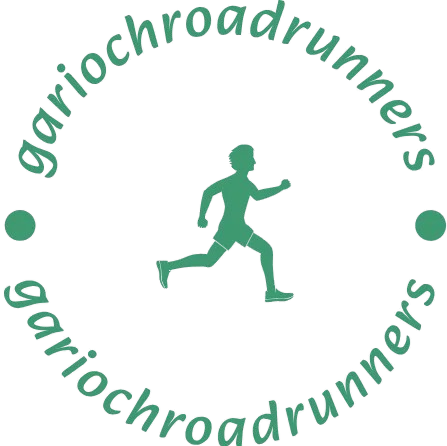Endurance running pushes your body to its limits, requiring both physical stamina and mental resilience. Nutrition plays a pivotal role in ensuring peak performance and recovery. Whether you’re training for a marathon or tackling a long-distance trail, these tips will help you fuel your body effectively.
1. Prioritize Carbohydrates
Carbohydrates are the primary energy source for endurance runners. During long runs, your glycogen stores are depleted, so consuming enough carbs is essential.
- What to Eat: Whole grains, fruits, vegetables, and legumes.
- Timing: Focus on carb-loading 2–3 days before long runs or races. Aim for 8–10 grams of carbs per kilogram of body weight during this period.
Pro Tip: Pair carbs with a little protein for sustained energy and better glycogen storage.
2. Balance Your Macronutrients
While carbs are crucial, fats and proteins also play important roles.
- Fats: Provide a slow-release energy source for longer runs. Include healthy fats like avocados, nuts, seeds, and olive oil.
- Proteins: Aid in muscle repair and recovery. Aim for lean sources like chicken, fish, eggs, or plant-based options like tofu and beans.
Pro Tip: Post-run meals should include a 3:1 or 4:1 ratio of carbs to protein for optimal recovery.
3. Hydration Is Key
Proper hydration before, during, and after your run helps maintain performance and prevent dehydration.
- Pre-Run: Drink 16–20 ounces of water 2–3 hours before running.
- During Run: Sip water every 20 minutes if running less than an hour. For longer runs, use electrolyte-enhanced drinks to replenish sodium, potassium, and magnesium.
- Post-Run: Rehydrate with water or recovery drinks containing electrolytes.
Pro Tip: Monitor urine color—it should be light yellow to indicate proper hydration.

4. Fuel During Long Runs
For runs lasting over an hour, consuming fuel mid-run is crucial to maintain energy levels.
- Options: Energy gels, chews, dried fruits, or bananas.
- Frequency: Start fueling 45–60 minutes into your run and continue every 30–45 minutes.
Pro Tip: Test your fueling strategy during training to avoid gastrointestinal discomfort on race day.
5. Don’t Skip Breakfast Before a Run
A pre-run meal jumpstarts your energy levels and prepares your body for the challenge ahead.
- What to Eat: Easily digestible carbs like oatmeal, toast with jam, or a banana.
- Timing: Eat 2–3 hours before your run to allow for digestion.
Pro Tip: If you’re short on time, opt for a small snack like an energy bar 30–60 minutes before running.
6. Incorporate Recovery Nutrition
After an intense run, your body needs nutrients to repair muscles and replenish glycogen stores.
- What to Eat: A combination of carbs and protein within 30 minutes post-run. Examples include a smoothie, chocolate milk, or a turkey sandwich.
- Timing: Don’t delay recovery meals—this is when your body is most receptive to nutrient absorption.
Pro Tip: Add antioxidant-rich foods like berries or spinach to your post-run meals to combat inflammation.
7. Plan for Long-Term Nutrition
Endurance runners need consistent nutrition to sustain training and performance.
- Iron: Prevent fatigue with iron-rich foods like red meat, spinach, and fortified cereals. Pair with vitamin C for better absorption.
- Calcium and Vitamin D: Strengthen bones with dairy products, leafy greens, and sunlight exposure.
- Omega-3s: Reduce inflammation with fatty fish, chia seeds, or walnuts.
Pro Tip: Consider consulting a sports dietitian for a personalized plan.
8. Avoid Common Pitfalls
- Skipping Meals: Leads to energy crashes and poor recovery.
- Trying New Foods on Race Day: Always test your diet during training to avoid surprises.
- Overhydrating: Can lead to hyponatremia (low sodium levels). Balance water with electrolytes.
Pro Tip: Keep a food diary to track what works best for your body during training.
9. Use Supplements Wisely
While whole foods should be your primary source of nutrients, supplements can fill gaps.
- Multivitamins: Ensure you meet your daily needs, especially during high-intensity training.
- Protein Powders: Convenient for post-run recovery.
- Electrolyte Tablets: Useful for long runs in hot conditions.
Pro Tip: Always consult a healthcare provider before starting any supplement.
10. Listen to Your Body
Every runner’s nutrition needs are unique. Pay attention to how your body responds to different foods and adjust accordingly.
- Energy Levels: If you feel sluggish, increase your carb intake.
- Digestion: Avoid foods that cause bloating or discomfort.
- Cravings: Sometimes, cravings signal nutrient deficiencies.
Pro Tip: Experiment during training, not during races, to refine your nutrition strategy.
Conclusion
Nutrition is a cornerstone of success for endurance runners. By prioritizing a balanced diet, staying hydrated, and fueling strategically, you can enhance your performance and recovery. Remember, consistency and preparation are key—start optimizing your nutrition today to achieve your running goals!











